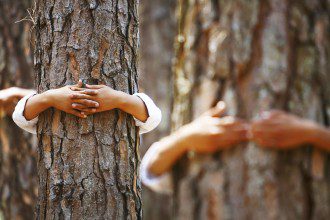| Online: | |
| Visits: | |
| Stories: |

| Story Views | |
| Now: | |
| Last Hour: | |
| Last 24 Hours: | |
| Total: | |
New Study Shows Regular Contact with Nature Reduces Crime, Increases Social Cohesion
Contributing Writer for Wake Up World
“We need the tonic of wildness… At the same time that we are earnest to explore and learn all things, we require that all things be mysterious and unexplorable, that land and sea be indefinitely wild, unsurveyed and unfathomed by us because unfathomable. We can never have enough of nature.” ~ Henry David Thoreau
The last few hundred years have seen a major shift in man’s relationship with nature. The trend has been a move away from the wild, organic, natural world towards artificial, digital, synthetic, controlled urban environments. With the advent of science during the Age of Enlightenment, man began to grasp that nature operated according to laws that through scientific investigation could be understood, and ultimately controlled and used for the benefit of humanity. The more we were able to explain, the less we perceived nature as a magical, awe-inspiring force that we were an inextricable part of. Humanity began to see itself assuperior to nature, and thus a slow disconnection was set in motion — a disconnection that we are gradually beginning to understand has done us a lot more harm than good.
There are an increasing number of studies demonstrating that our relationship to nature is closely tied to our sense of wellbeing. Some of the benefits of being in nature that numerous studies have found so far include: reduced stress, improved mood, increased focus, accelerated recovery and improved sleep. Now, in a new study published by the American Institute of Biological Sciences (November 2015), we can add lower crime rates and increased social cohesion to that list.
In the study conducted by researchers at Cardiff University by Netta Weinstein and others, an international, interdisciplinary team used nationally representative data from the United Kingdom and devised a rigorous model to systematically evaluate the relationships between objective measures and self-reported assessments of contact with nature, community cohesion, and local crime incidence.
According to the report, after accounting for a range of possible factors including socioeconomic deprivation, population density, unemployment rates, socioeconomic standing and weekly wages, the authors concluded that peoples’ experience of nature was responsible for an 8% variation in survey responses regarding their perception of community cohesion. The authors of the study describe this level of variation as, “a striking finding given that individual predictors such as income, gender, age, and education together accounted for only 3%” of the variance.”
Previous articles by Christina Lavers:
- Research Shows Just 7 Minutes of Meditation Can Reduce Racial Prejudice
- TV: Cutting the Cord
- Fool’s Gold: Breaking Through the Fear of Seeming Foolish
- The Art Of Failing Well
- Taking Care of Our Inner Tribes – Microflora, Awakening and You
- Taking Responsibility For Our Energy
- Discernment – Navigating The Spiritual Minefield
- How To See Through The Smoke And Mirrors
- Heart Aligned Eating: Beyond Dietary Absolutes
-
Follow Wake Up World On…
[FACEBOOK]: http://www.facebook.com/joinwakeupworld (An interactive community of over 2,800,000)
[PINTEREST]: http://pinterest.com/wakeupword/
[TWITTER]: http://twitter.com/joinwakeupworld
[YOUTUBE]: http://www.youtube.com/joinwakeupworld
[GOOGLE PLUS]: https://plus.google.com/112452105795129310867/posts
[WEBSITE]: http://wakeup-world.com




